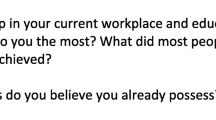Abstract
This paper attempts to apply historical methods to help understand the relationship between the philosophy espoused in the works of Laozi or Tao De Ching and educational leadership. The objective is to study the thought of Laozi regarding leadership, to identify ideas and solutions that can be applied in modern educational management, as well as to provide a new definition and values to the ideas of Laozi. Laozi lived in ancient times, meaning that the works describing his thought are difficult to understand. The present study is primarily based on English sources written on Laozi by Ju-Chou Yang and on the commentary on Laozi by Bi Wang. Additionally, this article also refers to and compares other comments on the ideas of Laozi regarding management. This study finds that Laozi had varied ideas on management and philosophy. Laozi ’s views regarding organization are still relevant today. He stressed flexibility and the importance of adapting to the environment. As regards leadership, Laozi emphasized non-action, softness, humility, calmness and the elimination of desire. Furthermore, in his art of employment, Laozi insisted that leaders must overcome their personal likes and dislikes in relation to individuals to ensure the full utilization of their potential.
Similar content being viewed by others
References
Barnard, C. I. (1968).The functions of the executive. Massachusetts: Harvard University Press.
Bass, B. M. (1990).Bass and Stogdill ’s handbook of leadership. New York: Free Press.
Bennis, W. G., & Nanus, B. (1985).Leaders: The strategies for taking charge. New York: Harper & Row.
Burns, J. M. (1978).Leadership. New York: Harper & Row.
Chen, G. Y. (1993).New comments on Laozi and Zhuangzi. Taipei: Wu-Nan Books.
Chen, M. (1986).Talk on management experiences. Taipei: Zhi Wen Books.
Chen, Y. D. (1957).The history of ancient chinese philosophy. Taipei: Zhong Hua Books.
Geneen, H. S., & Moscow, A. (1984).Managing. New York: Doubleday.
Hollander, E. P. (1978).Leadership dynamics: A practical guide to successful relationships. New York: Free Press.
McGregor, D. (1985)The human side of enterprise: 25th anniversary printing. New York: McGraw-Hill.
Robbins, S. P. (2001).Organizational behavior. New Jersey: Prentice-Hall.
Tan, Y. Q. (1994).Comments on Xunzi ’s theories. Taipei: Wen Chin Books.
Wang, B. X. (1993).The philosophy of Laozi. Taipei: Dong Da Books.
Wang, B. X. (1995).The way of Laozi. Taipei: Han Yi Se Yan Culture Co.
Wu, I. (1994).Annotation of new interpretation of Laozi. Taipei: SanMin Books.
Xu, S. X. (1988).Managing: theory, process, and practice. Taipei: China Management Consultants Inc.
Yang J. C. (1987).Laozi Tao De Ching. Taipei: Wen Chu.
Zhang, T. Y. (1993).The interpretation of Zhuangzi. Taipei: Guang Wen Books.
Author information
Authors and Affiliations
Corresponding author
Rights and permissions
About this article
Cite this article
Wen, Ls., Hwang, K.P. A study on the application of laozi ’s thoughts on educational leadership and management. Asia Pacific Educ. Rev. 9, 262–269 (2008). https://doi.org/10.1007/BF03026715
Received:
Revised:
Accepted:
Issue Date:
DOI: https://doi.org/10.1007/BF03026715




